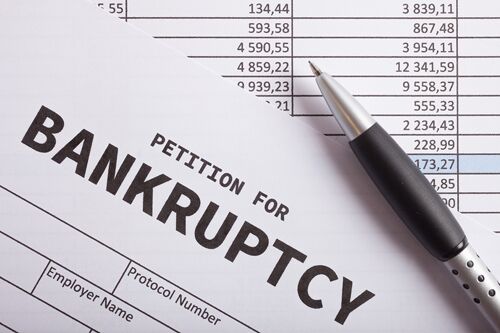What Property Can Bankruptcy Protect?
Oftentimes, the most pressing concern where bankruptcy is involved is the management and reduction of debt. But once the pressure from relentless creditors and collection agencies is finally relieved by the automatic stay, the next questions are usually, what property can my bankruptcy protect? Am I necessarily going to lose my car, or my home? Is it really true that bankruptcy can delay foreclosure? In this entry, we’ll explore some of your options when it comes to claiming exemptions, and the relationship between filing, liquidation, and foreclosure.
Claiming Exemptions in Bankruptcy
In simple terms, exemptions refer to property and assets which are “exempt” from being funneled into your repayment obligations with your creditors. However, exemptions are not one-size-fits-all: they vary from one case and debtor to the next. How do exemption systems work, and what choices will you be presented with when you file for bankruptcy?
In Pennsylvania and New Jersey alike, debtors have two basic options. You may claim:
- Federal Exemptions
- State Exemptions
While you are free to make your own decision, you must then stick to that decision: it’s an either-or situation which does not permit mixing and matching. An experienced Bucks County bankruptcy attorney will help you make an assessment as to which exemptions will best benefit your financial affairs.
Pennsylvania Bankruptcy Exemptions
The current Pennsylvania bankruptcy exemptions include:
- Business property – Includes business partnerships only.
- Certain personal property – This includes bibles, academic textbooks, sewing machines, and military paraphernalia and uniforms.
- Insurance – Limited to $100 per month. Includes disability benefits, life insurance, and no-fault auto insurance.
- Judgments from criminal cases – If you were the victim of a crime and the judge ordered the offender to pay you restitution, you can keep it.
- Pending wages
- Pensions – Includes public school, municipal, city, county, and state employees, as well as police officers.
- Private retirement benefits – Provided that (1) the benefits package states that it may not be used to repay the recipient’s creditors, and (2) there is a limit of $15,000 annually.
- Unemployment benefits
- Veteran’s benefits
- Worker’s comp
- Wildcard – Limited to $300.
While mixing and matching state and federal systems is prohibited, if you select the Pennsylvania exemptions, people within certain professions can also claim the federal nonbankruptcy exemptions. These include retirement, disability, and survivor’s benefits for people in the military, government workers, veterans, and some other types of employees (e.g. lighthouse workers).
Federal Bankruptcy Exemptions
Regardless of whether you live in New Jersey or Pennsylvania, you probably noticed two glaring omissions from your list of state exemptions: homes, and cars. There is no homestead or motor vehicle exemption in either state. (However, if you have “property held as tenancy by the entirety” — in other words, if you and your spouse own a property together — a single spouse may claim this exemption.)
As your car and your home are probably your most precious possessions, you may want to consider the federal exemptions, which offer greater protection on these two critical fronts.
The current federal exemptions include:
- Certain personal property, broken down as follows:
- Jewelry: $1,550
- Miscellaneous (includes goods, furnishings, apparel, instruments, animals, crops, and appliances): $12,250
- Motor Vehicle: $3,675
- Trade Tools: $2,300
- Domestic support. Includes alimony and child support.
- Disability benefits
- Homestead Exemption. Limited to $22,975.
- Life Insurance. This is counted under personal property. Limited to $12,250.
- Retirement accounts. Limited to $1,245,475 for IRAs (including Roth IRAs).
- Unemployment benefits
- Veteran’s benefits
- Wildcard. Limited to $1,225. If you do not use up your full homestead exemption, up to $11,500 of the remainder can go into your wildcard.
Bankruptcy, Trustees, and Foreclosure
While homestead and motor vehicle exemptions do not explicitly appear on the state lists, if you are filing for Chapter 13, you may still be able to protect them even without the federal exemptions.
The main component which differentiates Chapter 13 from Chapter 7 is its repayment plan, from which it takes its nickname of “reorganization bankruptcy.” This plan may cover a span of anywhere from three to five years, during which the debtor is expected to make consistent payments toward his or her creditors. Admittedly, this process can feel rather slow and cumbersome compared to the speedy four to six months regularly seen in Chapter 7. But the benefit is that those repayments build some protection against asset liquidation, which is the Achilles’ Heel of Chapter 7 (from which a repayment plan is absent).
If you use the federal exemptions, you can claim up to $22,975 in home equity. If a Chapter 7 filer’s nonexempt equity isn’t enough to justify a sale, he or she may also be able to keep their home.
In addition to using your bankruptcy exemptions as a safeguard against liquidation, you can use your bankruptcy itself as a way to delay (though not completely prevent) foreclosure. As soon as you file, you are protected by the automatic stay, which blocks your creditors from making any collection attempts while the stay is in effect. While bankruptcy cannot permanently halt a foreclosure, it can buy you precious time to rehabilitate your finances.
Pennsylvania Bankruptcy Lawyers Offering Free Consultations
If you or someone you love is considering filing for Chapter 13 or Chapter 7 in New Jersey or Pennsylvania, the experienced attorneys at Young, Marr, Mallis & Associates can help. To schedule your completely free and confidential legal consultation, call our law offices at (609) 755-3115 in New Jersey or (215) 701-6519 in Pennsylvania, or contact us online today.

